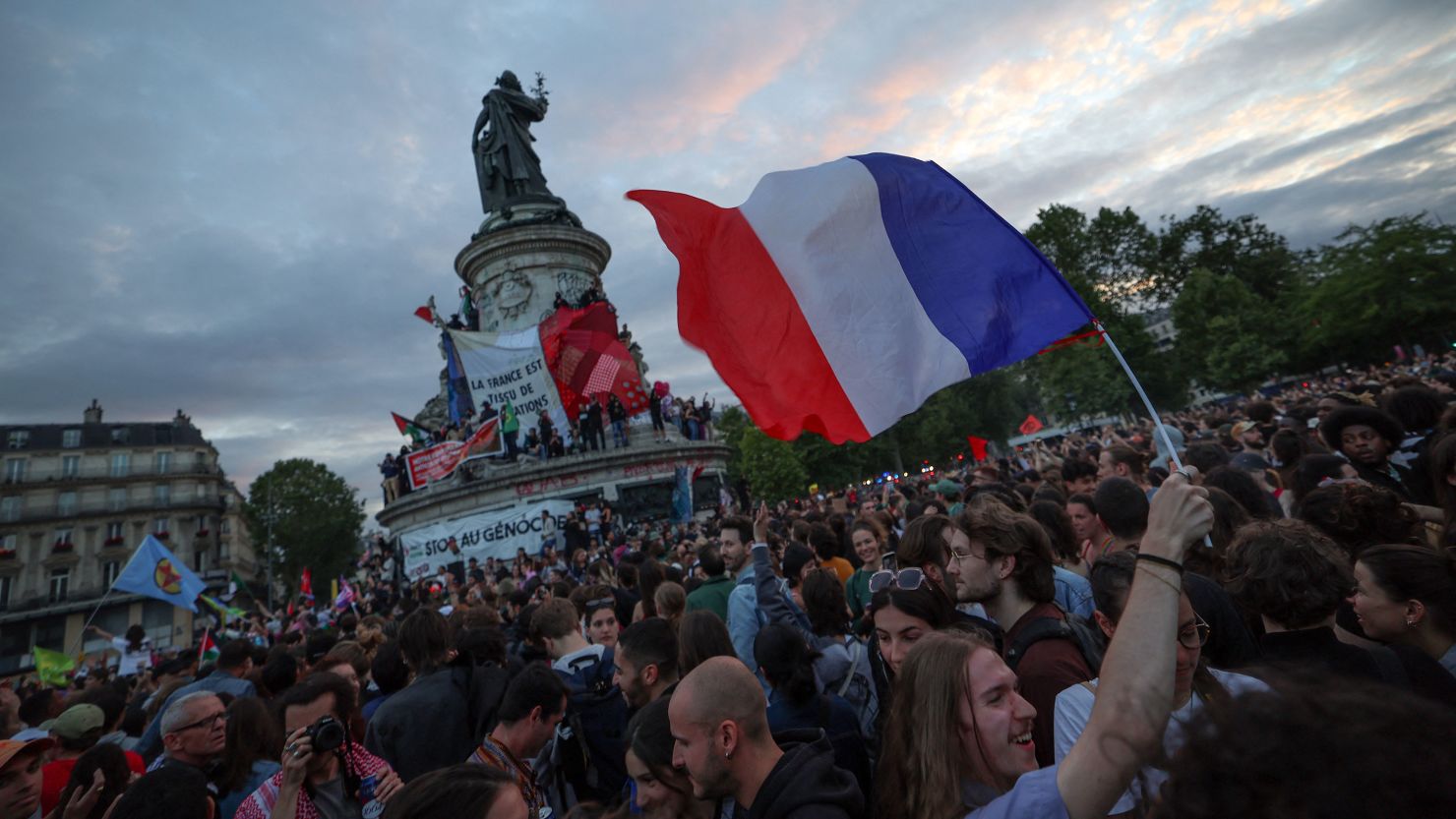
On Place de la Republique Square in Paris, news of the results was met with rapturous applause and fireworks as people embraced one another, breathing a collective sigh of relief, as they believe that the result has pulled France from the brink.
Turnout on Sunday was the highest in a parliamentary election for more than 20 years as French citizens took to the ballot box to make their feelings known: they did not want the far-right to govern.
However, with the left falling short of the 289 seats needed for a majority and with a weakened president, the national assembly is expected to be more fractured than ever.
What’s certain is that France is set to enter a prolonged period of instability as three opposing blocs with competing ideas and agendas try to form coalition or find themselves stuck in a state of paralysis.
Though the RN didn’t do as well as expected, it is still a victory for French far-right Marine Le Pen with her party getting more seats with each passing election. 8 in 2017, 89 in 2022, 143 in 2024 – the latter with the help of allies.
For the left-wing NFP alliance, it is going to have a tough time speaking with one voice. The last time it formed a bloc under the name of Nupes, in 2022, it fell apart because of personal differences as well as policy.
The bloc brings together five different parties. Far-left France Unbowed and the Communist party joined the socialists and the greens to form a New Popular Front.
Now the challenge is no longer whether the left can unite against the far right, but whether the different groups can work together to agree first on who might be prime minister from their camp, and then on the policies they might pursue.
How instability might impact internationally
With such a divided parliament there is no hope for major structural reforms at a domestic level, the best the leftists can hope for are ad hoc alliances to vote through individual pieces of legislations.
It’s equally hard to imagine how the current constellation would allow France to play an important role regarding Ukraine. Macron in the past has vowed to continue supporting Ukraine militarily while Le Pen has said her party would prevent Kyiv using French-supplied long-range weapons to strike inside Russia and would oppose sending French troops.
The left has remained relatively quiet on Ukraine – different parties from the coalition have slightly different stances – France Unbowed is against what it calls “escalation” with Russia.
Macron’s central bloc seems to have held up quite well, winning 163 seats. Even though it lost roughly 100 MPs, it’s a much better result than what the polls were suggesting, although we will see a shift in power from the Elysée to the National Assembly.
Macron’s gamble may have prevented the far right from coming to power, but it could yet plunge the country into chaos.




